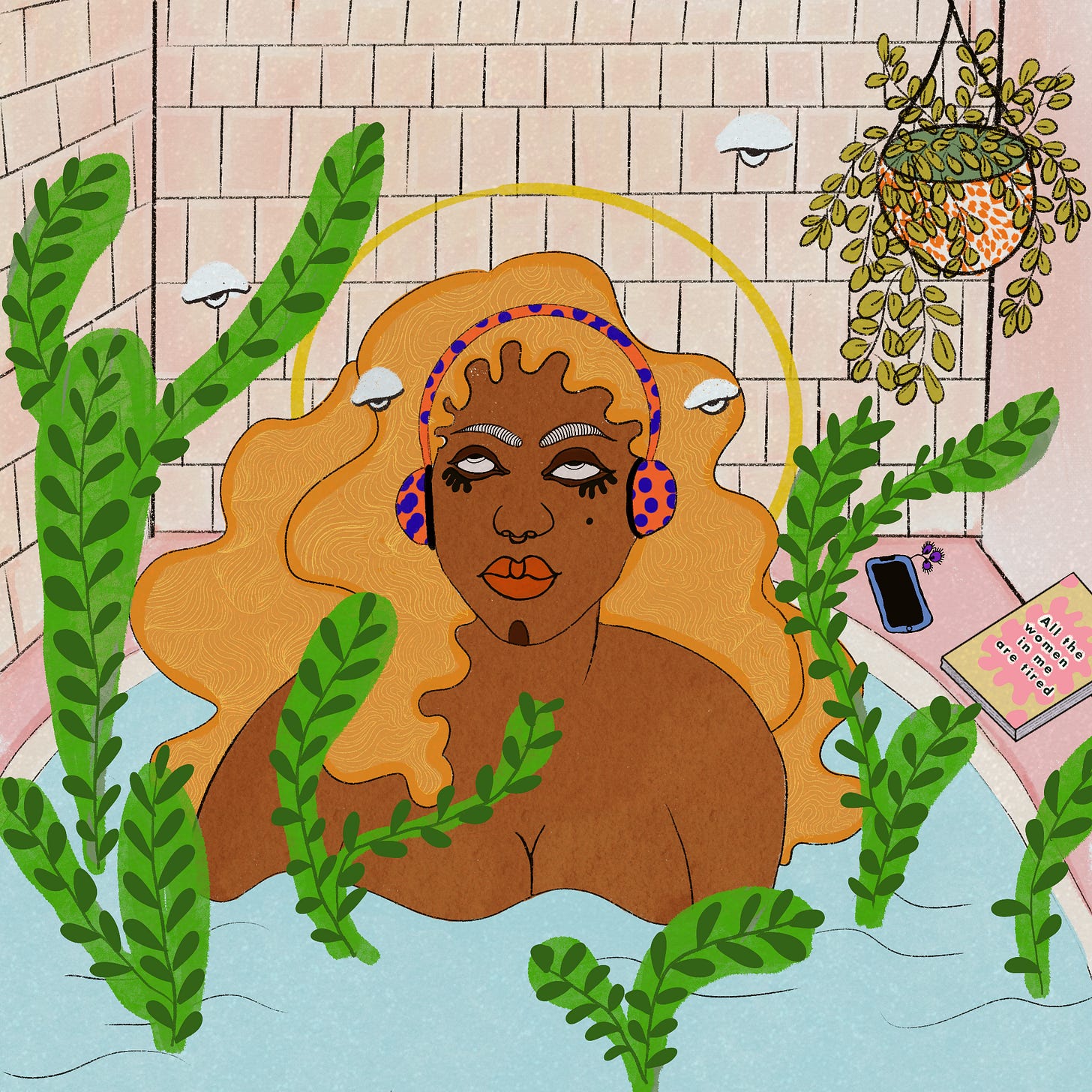For those of us who don´t want a seat at the table
Because what if liberation lies elsewhere, and the pursuit of a seat is merely a distraction?

There is a table, they say, where power is brokered and futures are decided. It is a table built on the bones of the displaced, lacquered with the blood of the colonized, and then decorated with the tokens of exploitation. Some fight for a seat at this table, believing that inclusion is the path to liberation. But what if liberation lies elsewhere and the seat at the table is just a distraction? What if true sovereignty demands we turn our backs on this table altogether. Not even to build a new one elsewhere but perhaps to return to circles formed standing together on land or something as crazy as sitting on grass together.
As an African womanist, anarchist, and decolonial holistic living & healing guide, I have often found it strange to hope for a seat where power has long feasted on the lives of people just like me. I believe that the struggle is not to integrate into a system that was never built for us but to dismantle/dismiss it, to watch carefully as it decays into fertile soil for something more nourishing to us all. To want a seat is to seek inclusion and validation from the very systems and places that have long benefitted from denying others’ liberties.
We’ve become convinced that liberation requires their permission, their laws, their language, their methods and tools. I say no. There is no need for their tables, their paths, or their approval. We can choose to remember other ways, older, freer, rooted in incorruptible knowledge. Not for a better position in empire-building, not for a warmer seat designed to secure our allegiance. Not so we can busy ourselves with patching a few holes while preserving the structures that feed off of us.
No, I seek no seat nor the crumbs from their tables. I’d rather seek the land beneath my feet, the sky above my head, and the bonds of community woven through trust and reciprocity.
For me, womanism teaches me that liberation is tricky business. It calls me to honor the wisdom of all before me - whose survival remains a testament of resilience, rebirth and a new chance at becoming even freer in each generation. Anarchism teaches me that no hierarchy can grant true freedom, and that power must be decentralized, claimed, and protected collectively. Holistic decolonization shows me that sovereignty is not found in the contracts and negotiations with colonizers, but in connection to one's own power, reclaiming our natural rights beyond race, gender, religion and nationality. As beings connected to the rhythms and laws of life, not to man-made dominion. It reminds me that it can be found and practiced in the calming of nervous systems, the planting of seeds, the tending of herbs, and the healing and liberation of world-views, minds, bodies and spirits.
To reject the table is not to retreat into isolation nor indifference. It is to use our precious energy, power and time to build other worlds and world-views. World-views that teach us about what liberating power means and where to connect to it rather than where and who to ask for it. It is to stop contorting ourselves for acceptance, to step out of the performance of pleasantries designed to appease their ill world. It is to understand that our freedom lives beyond the reach of those who need our obedience to feel powerful.
Above all, it is to reclaim ourselves first, our right to take up space in this shared world. The right to belong to our homes, lands and our languages. It is a revival in joyful ceremonies, untamed dances and soul awakening chants.
It feels like walking barefoot on warm earth, breasts bare to the wind, listening to the stories held in stones, ancient trees and streams. And feeling no fear of those who might find their value in greys, blacks and blue suits and expensive silk ties, sitting in glass towers, believing the world and future belongs to them alone.
It is to teach our children that their worth is not decided by those who profit from their labor, enslavement, insecurities and fears. To teach them to find value through the nourishing bonds they forge with themselves, their full selves, their environment and chosen communities. To find strength in the connections no one can sell to them, that need no laws to be legitimate and that are governed by no rulers.
Some will call this utopian. Let them.
Utopias are necessary. They are beacons guiding us through the fog of despair and deception. To dream otherwise is to accept the limits imposed by those still imprisoned by their own fears and disconnection from a life sustaining existence. We refuse their limited views of power and freedom. We’d rather walk paths carved by those who dared to imagine freedom even in chains. Those who found courage to pursue it even at the risk of their own lives.
For those of us who don’t want a seat at the table, we are already building, inwardly and outwardly. We are planting, healing, and telling stories of a different world. We are weaving our futures with the threads of old and new wisdom, of grounded knowing and emergent truth.
We are not asking for permission. We are not waiting to be allowed to be free. We are not dreaming of inclusion.
We are remembering our power, and acting accordingly.
The table can crumble.
We will not mourn it.





